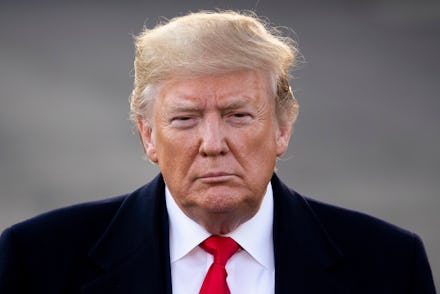The U.S. is officially pulling out of the Paris Climate Agreement. What happens now?

Getting countries committed to implementing change is key in fighting the climate crisis. From cutting down on carbon emissions to requiring sustainable practices within big businesses, there's a lot that individual countries can do. It seems, though, that the world won't be able to count on the United States. The Trump administration has resigned from the Paris Climate agreement, making the U.S. the first and only country to pull out of the pact.
In 2015, nearly 200 countries signed onto the United Nations' Paris Climate agreement. Described by the Natural Resource Defense Council as a "landmark environmental accord", the Paris Climate agreement addresses climate change and its impacts. Part of the agreement included pledges to reduce greenhouse gas emissions, with each country setting its own goal.
Secretary of State Mike Pompeo announced the decision to withdraw on Twitter. In a statement, Pompeo said that the decision was made due to the "unfair economic burden" the accord would impose on Americans.
"The U.S. is proud of our record as a world leader in reducing all emissions, fostering resilience, growing our economy, and ensuring energy for our citizens," Pompeo tweeted. "Ours is a realistic and pragmatic model."
The withdrawal isn't done immediately. Per the agreement's terms, it'll go into effect in one year. With the 2020 elections approaching, this means that the withdrawal hinges on Trump getting reelected.
The Trump administration's decision to withdraw from the Paris Climate agreement didn't come out of nowhere. Trump once referred to climate change as a "hoax invented by the Chinese". He later claimed the statement was a joke, but his feelings on the issue haven't changed much. Trump first announced his intentions to pull out of the agreement in June 2017.
Not every politician shares Trump's views, though.
In response to the withdrawal, Democratic presidential candidate Elizabeth Warren wrote in the Guardian, "The next president must rejoin the Paris Agreement, but that alone is not enough. Instead, she must show the world that the United States is ready to once again lead on the international stage."
Back in September, fellow candidate Pete Buttigieg said he would renew the United States' commitment to the Paris Climate agreement.
This isn't the first time that the United States has pulled out of an international climate agreement. It also happened in 1997 with the Kyoto Protocol that was also supposed to reduce greenhouse gas emissions. As noted by NPR, the United States pulled out of both agreements despite being instrumental in their development.
"That's one of the ironies of all this," Andrew Light, who helped develop the Paris Agreement, told NPR. "When the Paris Agreement was being negotiated, the U.S. delegation pushed for more transparency and accountability to make sure the countries that signed on would actually do what they promised."
"Even though we're the ones who have been pointing to these potential scenarios for problems with other countries, we seem to be the biggest problem," Light added.
Even if the withdrawal ends up reversed, Trump's actions have broadcasted a global message that the United States is a shaky partner at best. If Trump is successful in pulling out of the climate agreement, it may give him even more leeway to roll back more environmental regulations in the states.